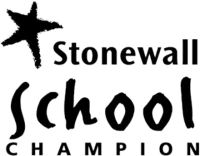Drama
"Theatre is a form of knowledge; it should and can be a means of transforming society. Theatre can help us build our future rather than just waiting for it." Augusto Boal
Curriculum Principles
Our school motto of ‘Success for Everyone’ is implemented as we help to prepare students with a rich, powerful knowledgebase. We hope to enrich their experiences by developing the ability to contextualise their knowledge alongside developing transferable skills for life beyond Rossett by equipping them with the resilience to build on effective teamwork, leadership and problem-solving skills. We aim to instil our students with the confidence to be able to articulate themselves, express themselves creatively and build positive relationships.
Drama is vital for communicating with others, both in school and in the wider world, and it is fundamental to learning in all curriculum subjects. Within the drama curriculum we ensure that students are given the opportunities to explore a variety of topics, styles, issues, practitioners, playwrights and repertoire. We encourage students to be confident to unleash their creative flair.
Drama is a place to develop empathy, a base to explore and understand diversity in the world we live in.
Curriculum Features
All students will arrive at Rossett School at different starting points in Drama. The curriculum is focused around a foundation of knowledge and skills required to be able to create theatre and take drama from ‘page to stage’ encouraging and giving opportunities to develop a passion for the world of Performing Arts. Key concepts and skills required by the end of Year 13 are filtered through the KS3 and KS4 curriculum. This is designed to raise expectations and standards from the very start and ensure that rich, powerful knowledge is being understood, both practically and theoretically.
Throughout all key stages, students are provided with opportunities to explore different cultures and become more diverse young people which is vital in the modern world. The curriculum in place at Key Stage 3 ensures that Students in Year 7, 8 and 9 will develop and build an ever-growing ‘knowledge bank and toolkit’ through study of key theatre practitioners and styles, exploration and performance of a play, put their knowledge and skills into practice through exploration of a social, historical and cultural topic and devising impactful drama. The structure of the curriculum allows students to return to key concepts throughout each year, but build on them to deepen their knowledge further as they progress through the curriculum. Our aim is for students across all key stages to have access to live theatre for evaluative and analytical purpose.










